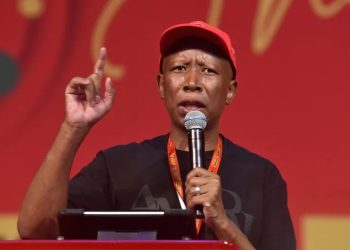South African President Cyril Ramaphosa is facing a wave of criticism and mounting calls for his resignation following his decision to grant Nigerians visa-free entry into South Africa. The announcement has sparked outrage among South Africans, who argue the policy places undue strain on the country’s struggling economy and public resources.
Social media platforms have become the battleground for public dissent, with hashtags like #RamaphosaMustGo and #NationalShutdown trending widely. Many citizens see the visa-free policy as emblematic of a broader disconnect between the government and the people it serves.
One viral tweet summed up the anger: “Across South Africa and to every South African citizen, this is not your president but he’s pretending to be. Originally he’s Nigerians’ president, and we demand his resignation. #NationalShutdown.”
Countries ban nigerians then you want to nurse them in our country…ill never support that…i support #NationalShutdown 100% pic.twitter.com/t95A5qJACi
— Blaq Ayisha🦄 (@kadibetsow1) December 5, 2024
National Sovereignty and Economic Concerns
Critics argue the policy undermines South Africa’s sovereignty and worsens existing economic pressures. With unemployment rates at record highs and public services under strain, many South Africans feel increasingly sidelined. Concerns over job competition and social services access have reignited tensions around immigration.
Unemployed youth and marginalized communities have been particularly vocal, seeing the policy as another blow to their already limited opportunities. “This decision shows just how little our government cares about its own people,” commented one user online.
Broader Dissatisfaction with Leadership
The visa policy has also reignited frustration over Ramaphosa’s overall leadership. Detractors accuse him of failing to address systemic challenges like corruption, economic stagnation, and inadequate service delivery. For many, this move symbolizes a government out of touch with the needs of ordinary South Africans.
Dear South Africans from all 9 provinces, we have our differences, but let's put them aside
Let's agree on one thing: #RamaphosaMustGo.
The man must simply resign.
That or a #NationalShutdown.
His decision-making has been persistently detrimental to the countrySikhathele!😭 pic.twitter.com/sh0qOVemOZ
— 🇿🇦 iScathulo SePhara 👞 (@ISephara) December 4, 2024
Calls for a National Shutdown have gained momentum, with citizens organizing protests to demand accountability. “I genuinely want this National Shutdown to happen because I am really sick and tired of it always trending with no effective change,” tweeted one frustrated South African.
A Strategic Perspective?
Supporters of the visa-free policy suggest it could have strategic benefits. Nigeria, Africa’s largest economy, is a key partner in the African Continental Free Trade Agreement (AfCFTA). By fostering stronger ties with Nigeria, South Africa may position itself as a leader in continental trade and integration. Proponents argue this approach is vital for long-term economic growth and regional development.
However, for many South Africans, these potential benefits feel distant compared to the immediate struggles they face. Critics insist that domestic challenges, such as unemployment and inequality, must take precedence over pan-African diplomacy.
A Nation at a Crossroads
The visa-free entry controversy has laid bare deeper issues of governance, identity, and equity in South Africa. The growing backlash underscores the precarious balance between international cooperation and domestic priorities.
As public anger continues to swell, it remains to be seen whether this unrest will translate into tangible political change. What is clear, however, is that the policy has ignited a national conversation about the future of Ramaphosa’s presidency and South Africa’s path forward.






















